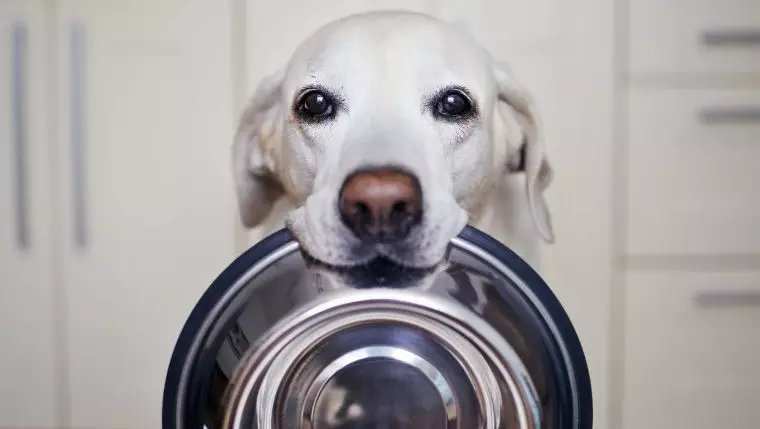Dogs have long been considered man’s best friend, but their relationship with food is often a complex one. This attraction to sustenance can be traced back to their ancestors, grey wolves, which scavenged for food in the wild. This innate drive for food may lead certain breeds to exhibit excessive hunger behaviors. If your pup seems perpetually hungry, barking and whining for another meal even after being fed, it’s time to explore the underlying causes of this behavior. Although food serves the primary function of nutrition, the dynamics of a dog’s appetite are influenced by a variety of factors, each requiring careful consideration.
Nutritional Oversights: The Importance of a Balanced Diet
One of the foremost reasons a dog may seem always hungry is related to their diet. Overfeeding or underfeeding can severely impact a dog’s sense of satisfaction post-meal. A dog’s caloric and nutritional requirements are not static; they vary according to factors like age, breed, activity level, and health status. To ensure your dog is receiving the right nutrients, consider consulting a pet nutritionist who can tailor a diet plan specific to your canine’s needs. Such a diet enhances not only physical health, but can also quell excessive hunger by ensuring it’s nourished adequately.
Even with a nutrient-rich diet, some dogs may experience ongoing hunger due to malabsorption issues. This unfortunate situation arises when the body cannot absorb the food consumed, leading to the perception of persistent hunger. Causes could range from worms and parasites to conditions like inflammatory bowel disease, diabetes, or even more serious health concerns such as cancer. Regular veterinary consultations can provide clarity, enabling you to ascertain whether underlying health issues are causing the constant begging at your feet.
Two common health issues—diabetes and hyperadrenocorticism—could significantly affect your dog’s appetite. In diabetic dogs, a lack of insulin inhibits the absorption of glucose in the body’s cells, sending signals to the brain that cause these dogs to feel unending hunger. Likewise, Cushing’s Disease can lead to an increase in appetite due to hormonal imbalances. If its suspected your dog may suffer from these conditions, immediate veterinary intervention can offer proper diagnosis and treatment strategies, including medications and dietary adjustments.
Sometimes, a dog’s behavior around food is learned rather than instinctual. If your dog has become adept at manipulating you with those irresistible puppy eyes, it may have developed a pattern of demanding food that you inadvertently reinforced. Consistent meal schedules are crucial here—dogs thrive on routine. It’s important to train yourself and your family members to stay committed to a vet-approved feeding schedule rather than giving in to the pleas for snacks outside of this routine. Employing commands such as “wait” can help create boundaries for your dog while also encouraging better behavior.
Environmental Anxiety: The Emotional Side of Eating
Your dog’s need to eat incessantly can also be rooted in emotional distress. Dogs that feel insecure or anxious in their environment may adopt a “feast or famine” mentality, treating every meal as if it could be their last. Identifying and addressing sources of anxiety in your dog’s life is essential. Stressors could range from loud noises to changes in their environment or routine. By minimizing these stressors, you can help reduce their need to overeat as a coping mechanism.
Understanding why your dog seems perpetually hungry involves examining its nutrition, health status, learned behaviors, and emotional well-being. By working closely with your veterinarian or a pet nutritionist, you can develop a comprehensive view of what is driving your dog’s appetite. Ultimately, creating a balanced approach that addresses both the physical and psychological factors at play will lead to a happier and healthier canine companion. So the next time your dog appears to be inhaling food and immediately asking for more, utilize these insights to foster a more balanced relationship with food.

